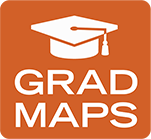The Associate of Arts Program in the Department of English is designed for students who are passionate about reading and writing, who like being creative, and who want to develop professional skills for their careers. This program lets students earn an Associate’s degree with 60 credit hours. It also forms the foundation for pursuing a Bachelor’s degree in English or related fields.
- Program Prerequisite: Not required.
- Grade Requirements: A 2.0 or better in all courses required for this degree in addition to an overall GPA of 2.00 (C) or higher.
- Credit Hour Requirements: A total of 60 credit hours is required for graduation; a minimum of 18 of these must be from the program detailed below.
- Program Code: 3022AA
- CIP: 230101
Advisement
English students are required to meet with a faculty advisor at least annually for course and program advisement. Please contact Dr. Daniel Paul at danielpaul1@weber.edu for more information or to schedule an appointment.
For General Education advising, call 801-626-6631 or emailcahadvisor@weber.edu
 Use Grad MAPs to plan your degree
Use Grad MAPs to plan your degree
Admission Requirements
Declare your program of study at the English department office, Elizabeth Hall 413. No special admission or application requirement is needed for this program.
General Education
Refer to Degree Requirements for Associate of Arts requirements. See Foreign Language Courses Required below to fulfill the Associate of Arts degree.
Consult with a departmental or college advisor for detailed general education guidelines.
Program Learning Outcomes
- 1. Writing and Editing Skills, including the inclusion of multimedia components –Includes writing, presentations made using presentation software from Microsoft and Adobe, and Document Design.
- 2. Creativity –In the interpretation of written and multimedia texts; in document and web design; in writing analytical papers and creative texts
- 3. Ability to Communicate In Writing, Orally and Visually –Includes the ability to gather, analyze, and communicate information and insights creatively and critically; Understand and apply various theoretical perspectives and discipline-specific terminology to interpretations of texts and /or analysis of data; demonstrate knowledge of research practices and application.